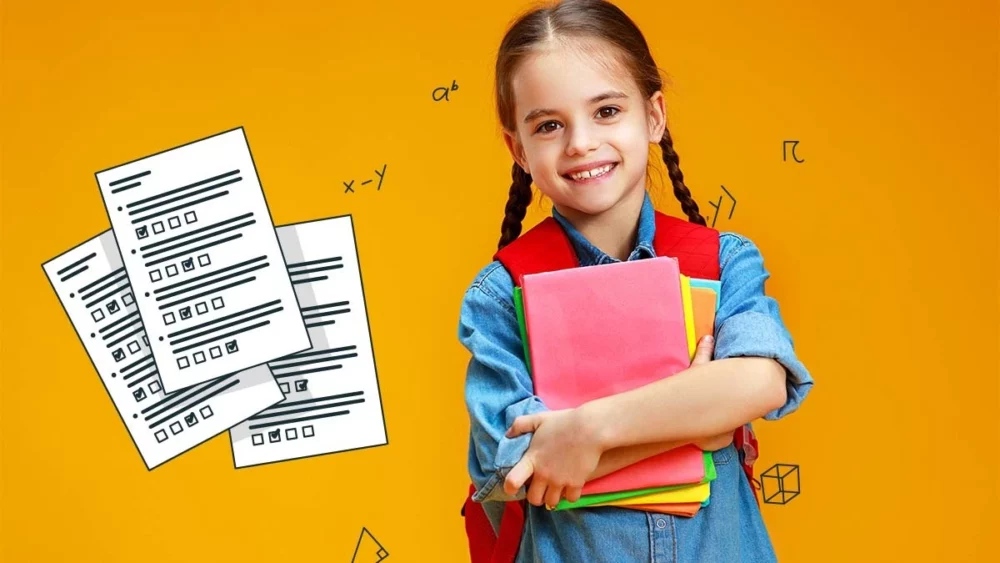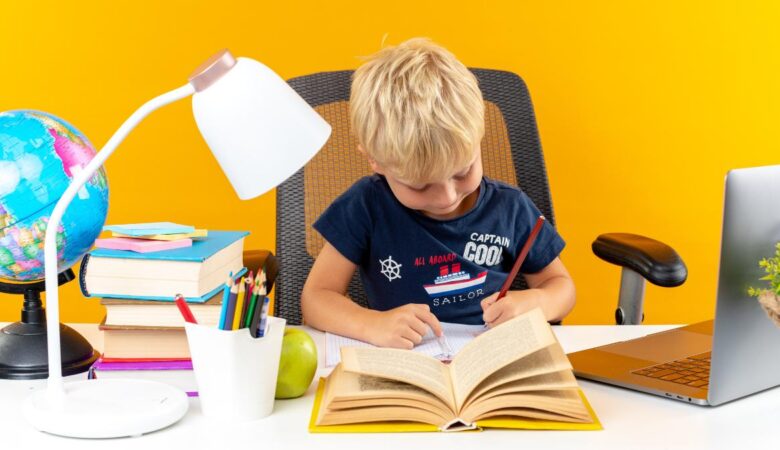If you are a parent of a future 11+ exam taker and preparing your child for the GL Assessment 11+ exam, you’re at the right place. This blog will walk you through some sample questions and answers to help you understand how to prepare for GL assessment and make your child feel more confident.
As a parent, it’s important for you to understand what GL assessment is and how you can contribute well to the journey of your child’s success so let’s dig in.
What is the GL Assessment 11+ Exam?
The grammar schools in the UK use the GL Assessment 11+ plus exam to test the academic ability of students through various subjects like English, maths, verbal reasoning and non-verbal reasoning.
These exams are taken so that these schools can pick capable students to join their study programmes. They are specifically designed to test your child’s potential and skills.
Why Practise GL Assessment Sample Questions?
Practising GL Assessment sample questions is one of the best ways to prepare for the 11+ exams. These 11+ practie questions help the students to get familiar with the exam format and the types of questions they will face in the real 11+. Students can build their confidence and improve their performance by working through GL Assessment papers.

Sample Questions And Answers
Here are some GL Assessment sample questions and answers from each subject area.
English
In the English section of the GL Assessment 11+ exam, your child will face questions that will test their comprehension, grammar, punctuation, and vocabulary. For example, they might read a passage and answer questions about the content, word meanings, or identify the main idea.
Practising these types of questions will help them improve their reading and analytical skills. Also, exercises on correct punctuation and grammar usage will make sure they are well-prepared for all sections of the English exam.
Here is how you can prepare your child:
Comprehension:
- Read a variety of stories, articles and poems together.
- Discuss the main ideas and details of each text.
- Ask questions about the text to improve understanding.
Grammar and Punctuation:
- Practise identifying and correcting grammar mistakes.
- Use workbooks or online resources for grammar exercises.
- Play fun grammar games to clear concepts.
Vocabulary:
- Look for new words daily and use them in sentences.
- Use flashcards to review and remember vocabulary.
- Make them read books and newspapers to naturally expand their vocabulary.
Explore Our Sample Test
Click the link to explore our sample test and gain a better understanding: GL Assessment English & VR: Test 1
Mathematics
Maths is a tricky subject compared to others. This section ranges from basic arithmetic to more difficult problems. Students might need to add, subtract, multiply, or divide numbers, as well as work with fractions, percentages, and ratios.
They will also face questions on geometry, such as calculating areas and perimeters and solving word problems. Regular practise with 11+ practise questions in Maths helps students become more confident and efficient in handling numerical and logical challenges.
Here is what you can do while preparing them for each section of maths:
Arithmetic:
- Practise basic operations like addition, subtraction, multiplication and division regularly.
- Use mental maths exercises to improve speed and accuracy.
- Utilise maths apps and games for interactive learning.
Problem-Solving:
- Solve word problems together to develop analytical skills.
- Break down complex problems into simpler steps.
- Motivate them to explain the reasoning behind solutions.
Geometry:
- Practise measuring and calculating areas and perimeters.
- Use visual aids like shape drawings and physical objects.
- Relate geometric concepts to real-life situations such as measuring rooms.
Explore Our Sample Test
Click the link to explore our sample test and gain a better understanding: GL Assessment Maths & NVR: Test 1
Verbal Reasoning
Verbal reasoning is a test that is designed to test a student’s reasoning and understanding abilities using concepts in the form of words. This section examines their skills in logic, deduction, and the relationship between words.
Questions might include finding synonyms or antonyms, completing analogies, or solving logic puzzles. Students can improve their vocabulary and ability to think critically and solve problems quickly by practising these questions.
Here is what to do:
Word Connections:
- Play word-building or matching games to enhance vocabulary connections.
- Use synonyms and antonyms exercises.
- Read books with rich language and discuss the meaning of new words.
Analogies:
- Practise completing analogy questions.
- Explain the relationship between words in analogies.
- Use analogy workbooks and online resources.
Logic Puzzles:
- Solve logic puzzles and riddles regularly.
- Discuss strategies for solving different types of puzzles.
- Encourage clear thinking to understand the reasoning process.
Explore Our Sample Test
Click the link to explore our sample test and gain a better understanding: GL Assessment Maths: Test 1 (EASY)
Non-Verbal Reasoning
The non-verbal reasoning section is designed to test a child’s ability to analyse visual information and solve problems using visual reasoning. The questions might involve identifying patterns, shapes, or sequences, and determining the relationships between different visual elements.
These exercises help in developing geometric understanding and the ability of critical thinking. Encourage your child to practise regularly to improve their ability to process information quickly and accurately, here is how:
Pattern Recognition:
- Practise identifying patterns in shapes and sequences.
- Use non-verbal reasoning workbooks and online resources.
- Play pattern recognition games and puzzles.
Geometrical Awareness:
- Use building toys like LEGO to develop structural skills.
- Practise drawing and interpreting 2D and 3D shapes.
- Solve jigsaw puzzles to improve geometric visualisation.
Sequences:
- Practise completing visual and numerical sequences.
- Explain the logic behind the sequence patterns.
- Use sequence workbooks and apps for regular practise.
Explore Our Sample Test
Click the link to explore our sample test and gain a better understanding: GL Assessment NVR: Test 1 (EASY)
Benefits of Practising GL Assessment Sample Questions
Practising GL Assessment sample questions has numerous benefits. It helps students:
- Understand the exam format and question types
- Improve time management skills
- Build confidence
- Identify and work on weak areas
- Improve problem-solving skills

Real-Life Applications of Exam Skills
The skills students learn while they are preparing for the GL assessment exams are something more than an academic test. These skills can help in everyday life and the academic future.
Here are some examples:
Critical Thinking
Practising GL Assessment sample questions improves critical thinking and a skill which is useful in solving everyday problems and making decisions.
Time Management
Learning to manage time during the exam can help students become more organised and efficient in their studies and other activities.
Flexibility
Facing challenging questions and solving them builds flexibility and prepares students to handle difficult situations with a positive mindset.
Tips for Parents
You play an important role as a parent when preparing your child for their GL assessment 11+ exams. Here are some tips for you to support your child:
Be Involved
Be involved in your child’s preparation. Regularly analyse their progress and provide motivation and moral support.
Provide Resources
Make sure your child has access to all necessary resources, including GL Assessment papers, books, and online materials.
Create a Peaceful Environment
Set up a quiet and comfortable study area that is free from distractions. A peaceful environment can automatically improve concentration and productivity.
Encourage Regular Breaks
Make sure your child takes regular breaks during study sessions. Short breaks can help maintain focus and prevent anxiety.
Celebrate Small Wins
Celebrate your child’s progress and it doesn’t matter how small it is. A positive attitude can boost motivation and confidence.
FAQ’S
1. How many questions are there on the GL 11+ exam?
- There are a total of 80 questions. Which examines a child’s ability to understand, identify patterns, and work with verbal information.
2. What is the GL Assessment?
- The GL Assessments (Granada Learning) are tests used by many grammar schools in the UK to select students for admission. These tests cover various subjects, including English, Maths, Verbal Reasoning, and Non-Verbal Reasoning.
3. What happens if you fail the 11+ exam?
- The 11+ exam is usually a one time opportunity. It depends on the region but most areas don’t allow you to retake the exam.
4. What are the passing marks of GL assessment?
- The average score to pass is 80%. Note that this is just an estimate and every year it is decided by schools or the exam board.
5. How many questions are on GL?
- The standard GL Assessment formats are: For English: 49–56 questions in 50 minutes. For Maths: 50 questions in 50 minutes and for Verbal reasoning: 80 questions in 60 minutes.
Conclusion
The preparation of your child for the GL Assessment 11+ exams doesn’t have to be stressful. Using GL Assessment sample questions, practising regularly, and taking GL Assessment mock tests, your child can improve their skills and boost their confidence.
Remember to start early, create a study schedule and focus on weak areas. With the right learning techniques, your child will be well-prepared for the 11+ exams.
Feel free to share this blog with other parents and students preparing for the eleven-plus mock exams. Make this journey smoother and more successful for your child and others as well.
Good luck!










Leave a Reply